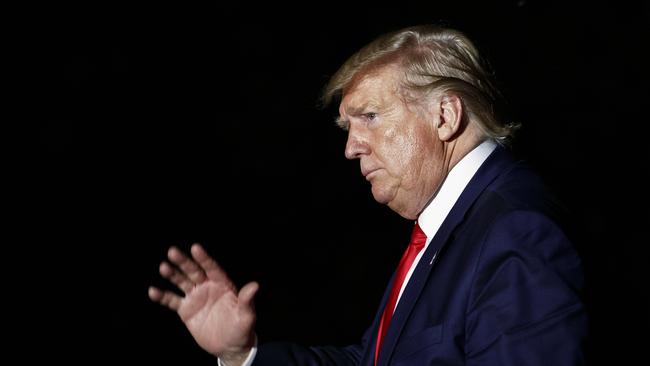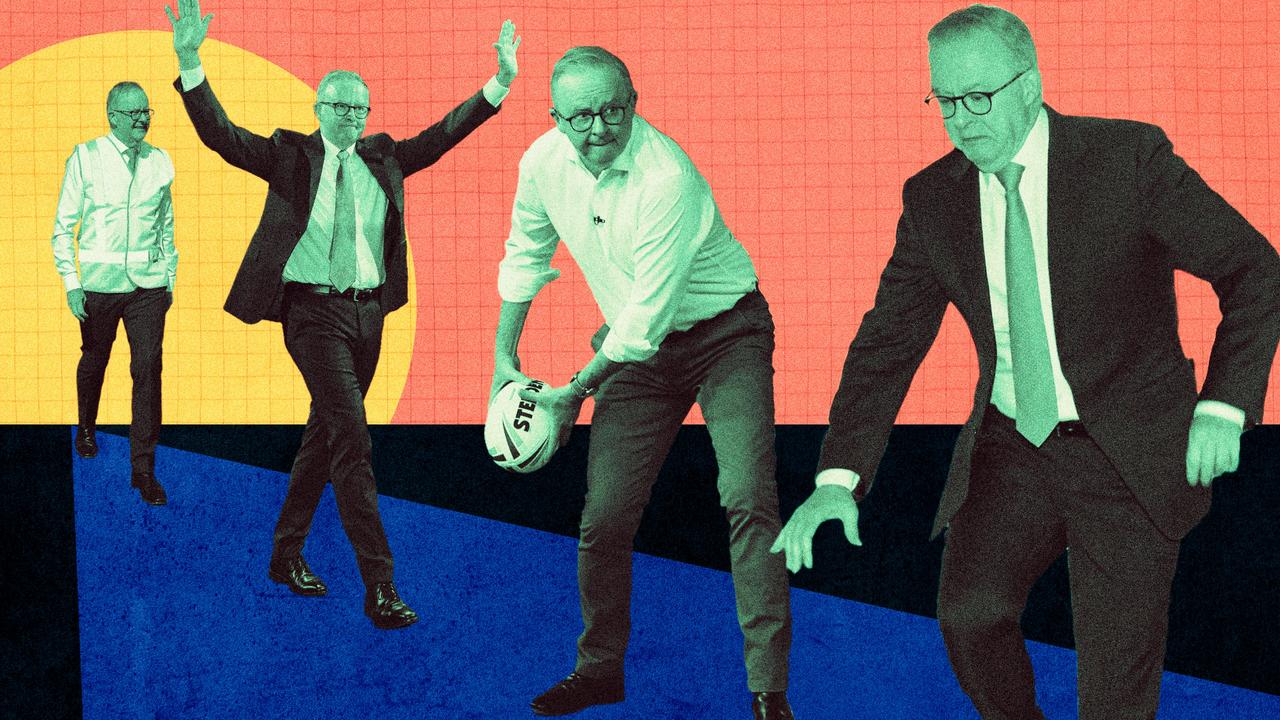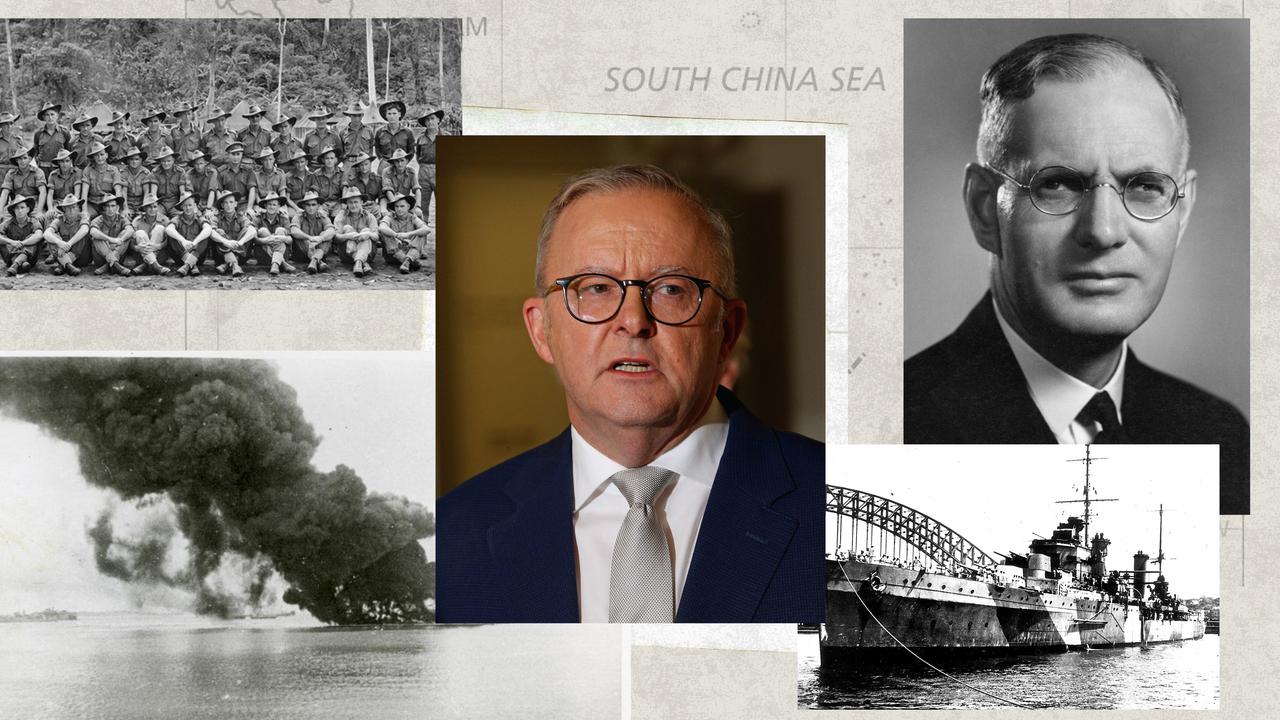
The topic was US President Donald Trump, and what was the No 1 question? Can he win again?
Two years out, you’d have to think he’s in with a reasonable chance, although if we’ve learned anything about politics since, say, Brexit, it’s that anything can happen, and the more unlikely it seems, the more money you should put on it.
The Australian’s Washington correspondent, Cameron Stewart, flew home for the event, and this is quite beside the point, but guess where he’s living when he’s in DC?
In Mike Pence’s old house.
How did that happen?
Well, it was all rather serendipitous: the Pence house became vacant about the time Stewart moved to the US to cover the new administration. He recalls cruising down the street with a realtor to have a little look, marvelling at all the gay pride flags and the Hillary bunting fluttering in the breeze, thinking: “Wow, this neighbourhood is pretty Democrat.”
Then, of course, the realtor stopped outside the house with no such decoration.
Stewart says nobody came to visit his family for at least a week after he moved in. Was this something to do with them not having a flag? Stewart didn’t think so but his wife knew better. She went out and bought … no, nothing political. She bought an Australian flag and she stuck it in the window, and suddenly it was all knock, knock, knock, and welcome to the neighbourhood. And we’re sorry, we thought you were Republicans!
No, no, we’re Australians!
That’s OK then.
It’s a good example of exactly how polarised the US has become under Trump, and it’s a little bit true here now, too.
You voted for Scott Morrison? Some people just don’t want to know you any more.
Wait, you voted for Shorten, or Hanson, or Lambie, or Bandt? How could you?
When did this happen? It used to be you voted for who you voted for, and your neighbour voted for who they voted for, and nobody really talked about it, or cared that much.
But back to Trump and his chances. Stewart was joined on the subscriber panel by Adam Creighton, who has recently returned to The Australian after a stint as a journalist in residence at the University of Chicago Booth School of Business. He started his career at the Reserve Bank of Australia and he’s worked for The Wall Street Journal. He’s one of a handful of journalists who thought Trump might win in 2016.
“I guess I just saw that there was a real mood for change in the US,” he said. “If you looked at the statistics, things like the figures about real wage growth … they hadn’t had an increase for about a decade. There was festering dislike of the elites in DC and in New York. I definitely thought it was possible.”
He was right but what about now we’re two-and-a-bit years in?
Stewart says Trump trod a narrow pathway to victory in 2016 — he lost the popular vote, and won three key states by as few as 80,000 votes, combined — and he will need to hold all those votes to win again.
“But what did Trump promise? He promised jobs. He promised tax cuts. He promised he would leave the Paris climate agreement, he promised to move the embassy to Jerusalem, he promised an America-first foreign policy, he promised them that he would put conservative judges in the Supreme Court, he promised to try to tackle the issues at the border. He’s had mixed success on that, but you certainly can’t say he hasn’t tried.
“And so, you know, if you actually start to look at this stuff, I mean, why are these people not going to vote for him again? He hasn’t kept all his promises — he didn’t repeal Obamacare, for example — but he’s done a lot of what he said he’d do.”
Stewart says Trump’s strength is “remarkable gut instinct. I’ve never seen someone who can pick his crowd, pick his voters, play to them and talk to them in the way he can. And target his enemies: crooked Hillary, sleepy Joe Biden, crazy Bernie Sanders, The Squad (of four liberal women, newly elected to congress.) He knows how to make that work for him.”
Creighton says the first winner in 2020 will be the media.
“The New York Times, actually all media organisations, have benefited from the Trump presidency through subscriptions. There’s been a real shift throughout the world toward trusted sources of media. People aren’t trusting mainstream media less. If you look at the figures, they must be trusting it more, at least in aggregate, because subscriptions are going up everywhere. And that’s Trump.”
In terms of the actual poll, he referenced a conversation he had with Mike Green, who served on the National Security Council during the Bush administration.
“He was making the point that something historic has to happen in this election because you’ve never had a president who has not been re-elected with an unemployment rate as low as it is,” Creighton said.
“But you’ve also never had a president that’s been re-elected with a 40 to 45 per cent approval rating. And that’s been Trump. And so something has got to give: the economy and all the other statistics are very good and his approval rating is very low. So history will have to be made either way.”
As it was last time: Trump was the outlier then and he’s the outsider now, and, well, can you see him vacating his house?




The Australian held two special events for subscribers last week, and both were sold out, or else they weren’t in your city, so not everyone could get there, but it seems a shame not to share.